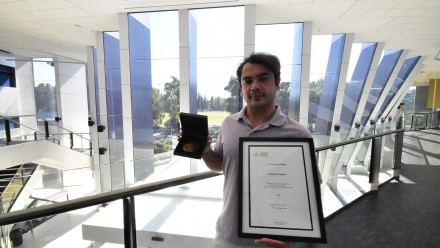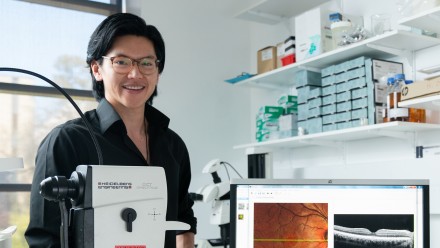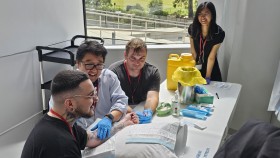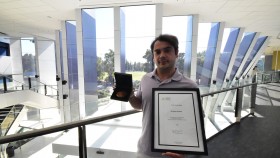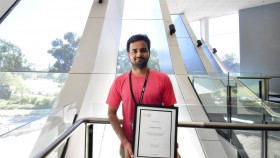Retina researcher named 2022 Young Tall Poppy scientist
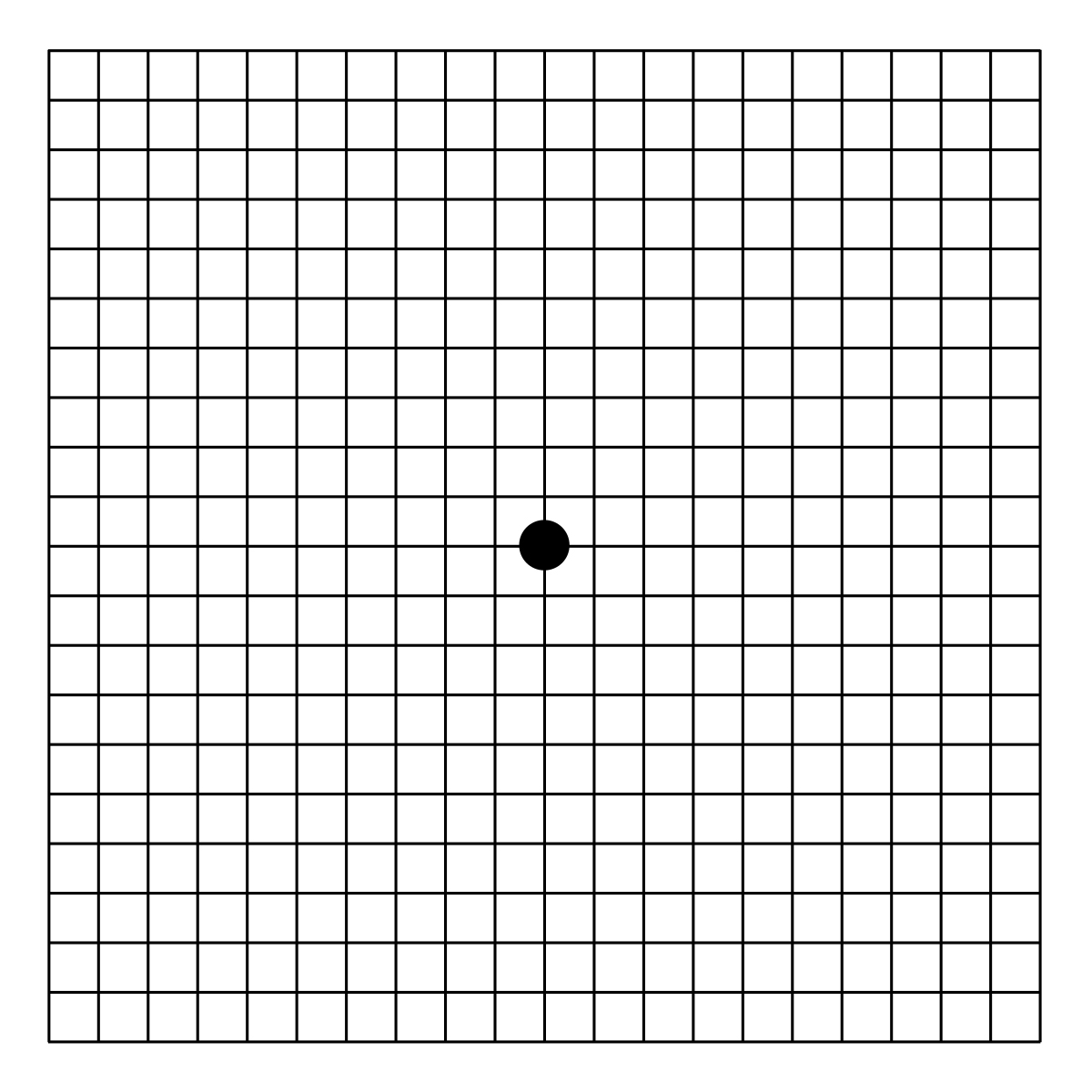 Look at the grid below from a comfortable reading distance. Focus on the dot in the middle of the grid with one eye covered.
Look at the grid below from a comfortable reading distance. Focus on the dot in the middle of the grid with one eye covered.
Good for you if the grid is clear and intact and the lines look straight—but for one in every seven Australians over 50, those straight grid lines would look wavy or bent.
That distortion is one of the symptoms of age-related macular degeneration (AMD), a retina disease that is the leading cause of vision loss in the elderly around the globe.
“AMD affects the part of our retina responsible for pretty much all of our useful vision, known as the macula,” explained Dr Joshua Chu-Tan, Research Fellow at the John Curtin School of Medical Research and Business Development Manager at the ANU College of Health and Medicine.
“A lesion with a width of approximately 1.5 mm, which is the thickness of a credit card, in this tiny area is sufficient to render you legally blind.”
For years, Dr Chu-Tan and his colleagues in the Clear Vision Research Lab have been investigating the use of gene expression-regulating molecules known as microRNA as therapeutics for AMD, the most common form of which has no cure yet.
The team seeks to understand the roles that microRNA plays in our eyes and harness these molecules to slow the degeneration of the macula.
Now though, Dr Chu-Tan’s research interests lie in using exercise as a non-invasive therapeutic to treat AMD. He is interested in figuring out what is happening in our retina when we exercise. Specifically, what are the messages being sent around the body including our retina, and if we can use this message to create a therapy for neurodegenerative disorders.
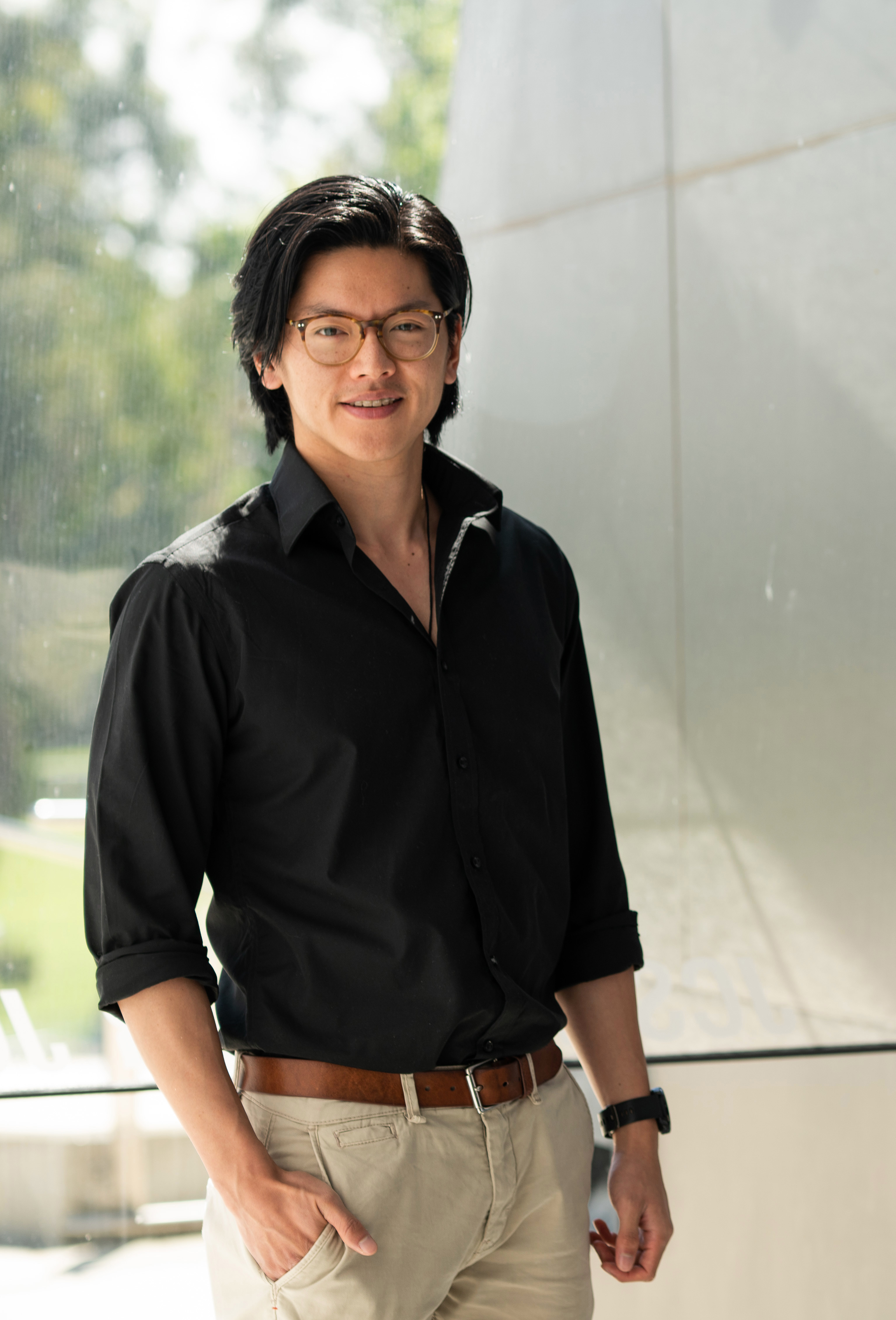 Dr Joshua Chu-Tan has won the 2022 ACT Young Tall Poppy Award. Image: Tracey Nearmy/ANU
Dr Joshua Chu-Tan has won the 2022 ACT Young Tall Poppy Award. Image: Tracey Nearmy/ANUOutside the lab, Dr Chu-Tan is an active figure behind a microphone, raising awareness of the impact of AMD and communicating the effort his team has put in to tackle it.
Since 2016, he has won the ANU and Asia-Pacific 3 Minute Thesis competitions, given a TEDx talk of over 1.7 million views and made himself to the ABC TOP 5 Science media residencies.
Now, his achievements in scientific research and communication are recognised and celebrated by the Australian Institute of Policy and Science (AIPS), as he became one of the recipients of the 20022 ACT Young Tall Poppy Awards.
“It is an incredible honour to be recognised with the prestigious ACT Young Tall Poppy Award,” said Dr Chu-Tan.
“I felt incredibly proud when I found out, especially due to the list of brilliant researchers that were previous recipients of the award. To be recognised alongside them is very special.”
Since the creation of the Tall Poppy Campaign in 1998, over 500 Young Tall Poppy Science Awards have been made across Australia, leading to significant achievements towards building a more publicly engaged scientific leadership in Australia.
“I believe it is part of our job to communicate our work to the general public,” Dr Chu-Tan remarked, “This is an important way to have our research be truly impactful in the world.”
To him, research and communication are both vital parts of a scientist’s ‘central vision’.
“I’ve been lucky enough to be able to give a number of public talks now, which I always enjoy doing,” he said.
Those talks, be it on the stage of a 3MT competition, in a podcast recording session or at a National Science Week event, allow him to engage with people outside his field and hear varying perspectives about his work.
“It’s our duty to ensure that the public is well-informed, and the next generation of scientists can be inspired to continue asking questions and creating knowledge,” said Dr Chu-Tan.







